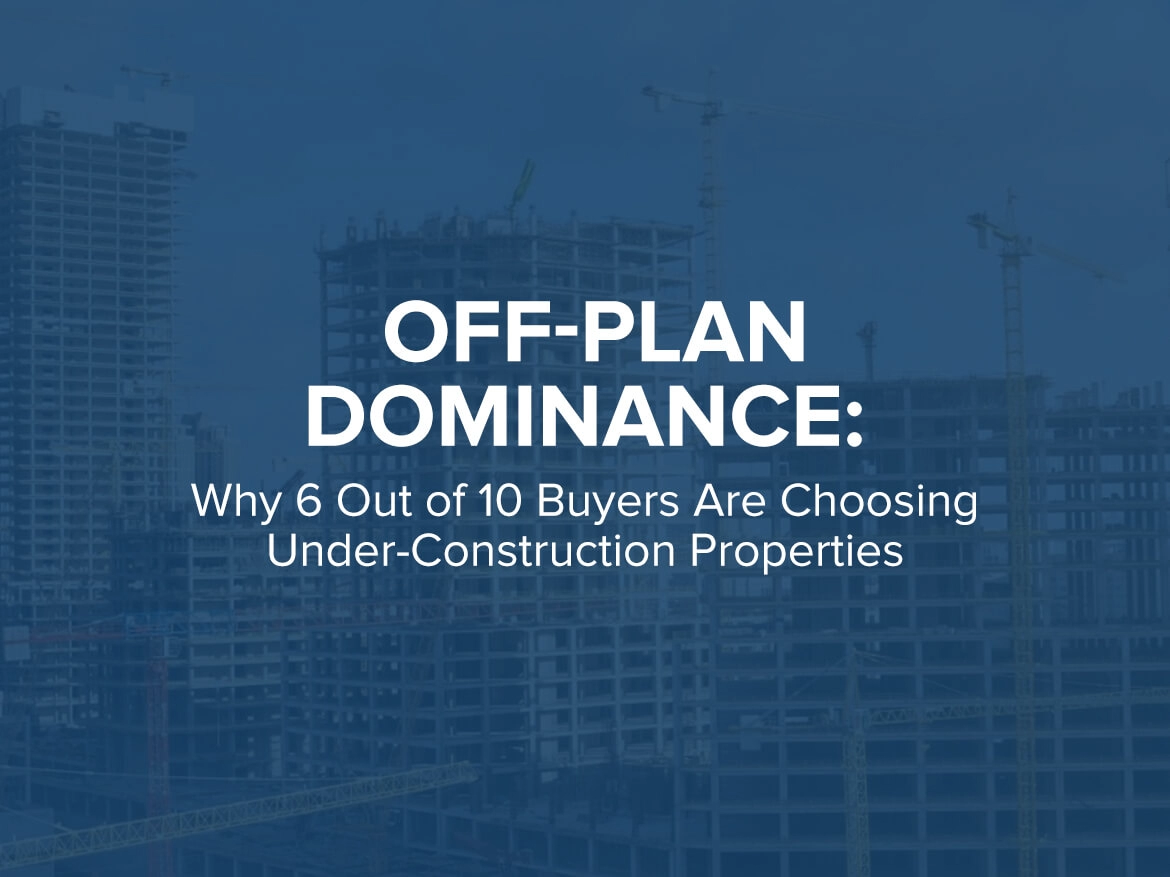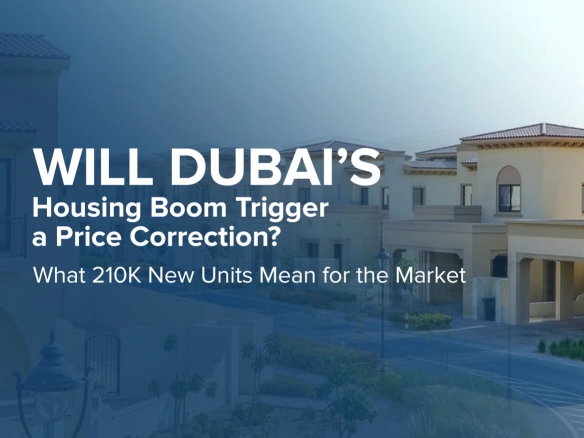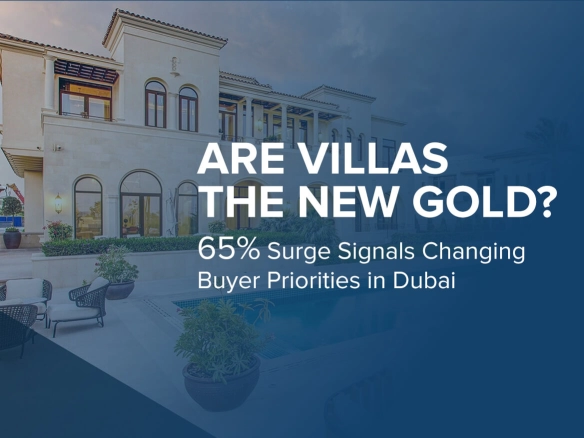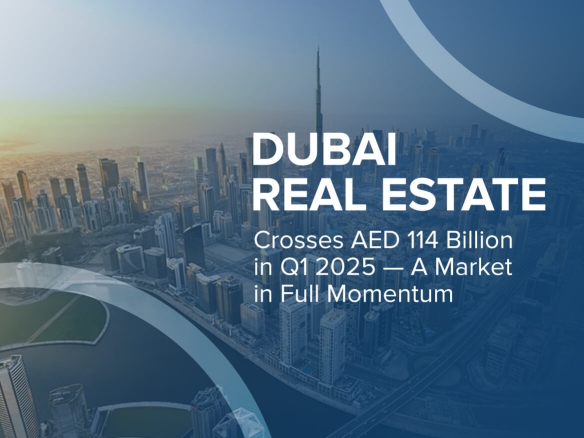Dubai’s property market has always had a flair for bold moves. But 2025 is telling a very specific story — and this time, it’s unfolding even before the foundations are laid.
In the first quarter of this year, nearly 60 to 65 percent of all property transactions in Dubai were off-plan. That means six out of every ten buyers chose to invest in something still under construction — something not yet tangible, but filled with potential. That decision speaks volumes about where confidence lies today.
The surge in off-plan activity is no accident. It’s driven by a combination of buyer strategy, market conditions, and the evolving nature of what people want — not just from a home, but from a long-term investment.
One of the biggest drivers is flexibility. Off-plan projects typically offer buyer-friendly payment plans — sometimes spread out over years — which make entering the market far more accessible. For many first-time buyers, this is the easiest and smartest way to get started in Dubai real estate without being locked into a large upfront payment.
But beyond affordability, off-plan properties are seen as high-growth opportunities. Buyers are placing strategic bets on areas that are still developing — places like Dubai South, The Valley, and Creek Harbour — knowing that once infrastructure catches up and communities mature, property values are likely to appreciate significantly. For investors, it’s not just a home purchase; it’s a future-focused move.
There’s also been a shift in how people view quality of life. Today’s off-plan communities aren’t just apartment blocks; they’re planned ecosystems. Developers are offering wellness centers, green spaces, family parks, co-working lounges, and even school access — all designed to create a richer, more holistic living experience. And buyers are responding to that vision.
At the same time, population growth is adding fuel to the fire. With nearly 90,000 new residents arriving in Dubai in Q1 alone, demand for new, well-priced housing is only rising. Off-plan supply — often more affordable than completed properties — is helping bridge that gap. For many of these new residents, an off-plan unit means getting into the market early, before prices soar.
Of course, it’s not without its risks. Project delays and market fluctuations are always a part of the off-plan conversation. But what we’re seeing now is a more informed, more confident buyer. People are researching developers, understanding timelines, and asking better questions. In many ways, this surge reflects a more mature market — one where buyers are bolder but smarter.
At USN Properties, we’ve seen this shift up close. Off-plan inquiries have grown steadily over the past year, not just from investors looking to flip units, but from families and individuals who believe in Dubai’s long-term growth. They’re not just buying properties — they’re buying into communities, futures, and possibilities.
The dominance of off-plan isn’t a passing phase. It’s a reflection of where Dubai is headed — outward, forward, and into the future. For buyers, it’s a chance to be part of that momentum. For developers and brokers, it’s a call to deliver not just promises, but places people are proud to call home.
In the first quarter of this year, nearly 60 to 65 percent of all property transactions in Dubai were off-plan. That means six out of every ten buyers chose to invest in something still under construction — something not yet tangible, but filled with potential. That decision speaks volumes about where confidence lies today.
The surge in off-plan activity is no accident. It’s driven by a combination of buyer strategy, market conditions, and the evolving nature of what people want — not just from a home, but from a long-term investment.
One of the biggest drivers is flexibility. Off-plan projects typically offer buyer-friendly payment plans — sometimes spread out over years — which make entering the market far more accessible. For many first-time buyers, this is the easiest and smartest way to get started in Dubai real estate without being locked into a large upfront payment.
But beyond affordability, off-plan properties are seen as high-growth opportunities. Buyers are placing strategic bets on areas that are still developing — places like Dubai South, The Valley, and Creek Harbour — knowing that once infrastructure catches up and communities mature, property values are likely to appreciate significantly. For investors, it’s not just a home purchase; it’s a future-focused move.
There’s also been a shift in how people view quality of life. Today’s off-plan communities aren’t just apartment blocks; they’re planned ecosystems. Developers are offering wellness centers, green spaces, family parks, co-working lounges, and even school access — all designed to create a richer, more holistic living experience. And buyers are responding to that vision.
At the same time, population growth is adding fuel to the fire. With nearly 90,000 new residents arriving in Dubai in Q1 alone, demand for new, well-priced housing is only rising. Off-plan supply — often more affordable than completed properties — is helping bridge that gap. For many of these new residents, an off-plan unit means getting into the market early, before prices soar.
Of course, it’s not without its risks. Project delays and market fluctuations are always a part of the off-plan conversation. But what we’re seeing now is a more informed, more confident buyer. People are researching developers, understanding timelines, and asking better questions. In many ways, this surge reflects a more mature market — one where buyers are bolder but smarter.
At USN Properties, we’ve seen this shift up close. Off-plan inquiries have grown steadily over the past year, not just from investors looking to flip units, but from families and individuals who believe in Dubai’s long-term growth. They’re not just buying properties — they’re buying into communities, futures, and possibilities.
The dominance of off-plan isn’t a passing phase. It’s a reflection of where Dubai is headed — outward, forward, and into the future. For buyers, it’s a chance to be part of that momentum. For developers and brokers, it’s a call to deliver not just promises, but places people are proud to call home.





Join The Discussion